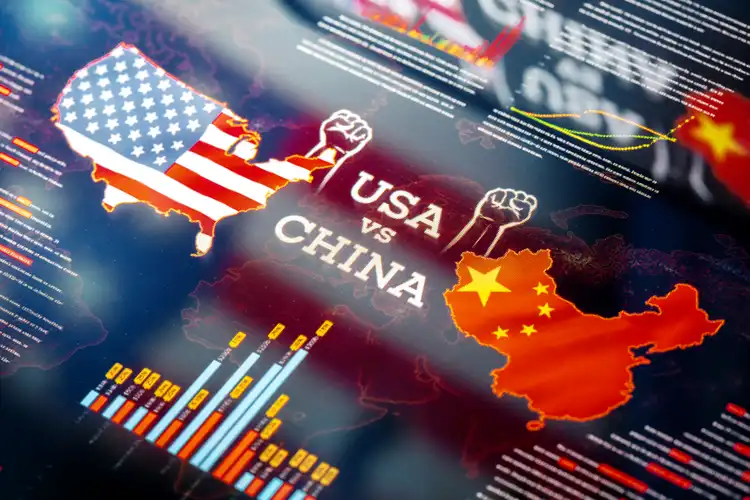
Key Points:
- China has sanctioned twelve major US defense companies and ten executives, citing arms sales to Taiwan and US sanctions related to Russia as justification.
- The move marks an escalation in China’s use of economic measures to retaliate against actions it deems detrimental to its interests.
- These sanctions further exacerbate ongoing tensions between the US and China, casting a shadow over future diplomatic and economic relations.
China Imposes Sanctions on US Defense Companies Over Taiwan, Russia
In a move signaling a further escalation of tensions between the world’s two largest economies, China announced sanctions against twelve US defense companies and ten senior executives on Wednesday. The sanctions, which include asset freezes and travel bans, are in retaliation for ongoing US arms sales to Taiwan and recent US sanctions on Chinese companies with alleged ties to Russia.
Targeting US Defense Giants
The Chinese government’s recent sanctions directly impact key players in the US defense sector. Lockheed Martin, Raytheon, and General Dynamics, all prominent defense contractors providing military equipment to the United States and its international partners, are among the sanctioned entities. This action represents the second instance in 2024 when China imposed sanctions on US defense companies due to their arms sales to Taiwan. Previously, in April 2024, Boeing Defense, Space & Security, General Atomics Aeronautical Systems, and General Dynamics Land Systems were placed on China’s “unreliable entities” list, citing their participation in arms sales to Taiwan.
The current sanctions represent an escalation of these previous measures. In addition to targeting corporate entities, the Chinese government has specifically named individual executives from Northrop Grumman Corporation and General Dynamics. This direct targeting of individuals associated with these companies signifies a more assertive approach in expressing displeasure with US actions related to Taiwan.
Two Key Grievances Fueling Retaliation
Secondly, the sanctions represent a direct response to recent actions taken by the United States government against Chinese businesses. Specifically, the US imposed sanctions on several Chinese companies accused of providing material support to Russia’s efforts to evade sanctions imposed due to the ongoing conflict in Ukraine. The Chinese government contends that these accusations lack merit and represent an infringement upon the legal rights and interests of the implicated Chinese companies and personnel.
China Invokes Anti-Foreign Sanctions Law
China is employing its Anti-foreign Sanctions Law, enacted in 2021, to justify these retaliatory measures. This law grants Beijing the authority to impose countermeasures against foreign entities deemed to be harming China’s interests through what it considers discriminatory or unjustified sanctions.
Impact and Future Implications
While the immediate impact of these sanctions on the targeted US companies remains unclear, the move carries significant symbolic weight. It underscores China’s growing assertiveness on the global stage and its willingness to leverage economic tools to counter what it perceives as hostile actions.
This latest development is expected to strain US-China relations further and complicate efforts to find common ground on critical global issues. The sanctions also threaten to disrupt the global defense industry, potentially impacting future arms deals and collaborations.
